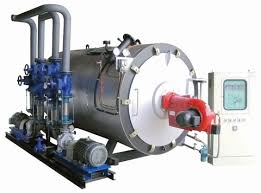
Sep . 04, 2024 01:19 Back to list
heat transfer oil boiler
Heat Transfer Oil Boiler An Overview
Heat transfer oil boilers play a crucial role in various industrial applications, providing an efficient and reliable method for transferring heat for processes that require elevated temperatures. Unlike traditional water-based boilers, heat transfer oil boilers utilize a special thermal fluid, typically a synthetic oil or a hydrocarbon, to carry thermal energy to different parts of the system. This design allows for higher operating temperatures without the risk of pressure build-up associated with water at similar temperatures.
One of the primary advantages of heat transfer oil boilers is their ability to operate at much higher temperatures than conventional steam boilers, often reaching up to 300°C (572°F) or more. This feature makes them ideal for industries such as chemical processing, food production, and petrochemical operations, where precise temperature control is essential. Furthermore, because the thermal fluid remains in a closed loop system, the boilers experience less corrosive wear over time, leading to increased longevity and reduced maintenance costs.
heat transfer oil boiler

The operation of a heat transfer oil boiler is relatively straightforward. The thermal fluid is heated in the furnace section, which utilizes various energy sources such as natural gas, electricity, or biomass. The heated oil then circulates through the system, transferring energy to heat exchangers, reactors, or other process equipment. After transferring its heat, the cooled oil returns to the boiler for re-heating, creating a continuous cycle.
Safety is a vital aspect of heat transfer oil systems, as these units must operate under high temperatures and pressures. Therefore, modern heat transfer oil boilers are equipped with numerous safety features, including temperature and pressure controls, as well as rupture disks to prevent over-pressurization. Regular maintenance is also important to ensure safety and efficiency; this includes checking for leaks, monitoring fluid levels, and maintaining optimal fluid conditions.
In conclusion, heat transfer oil boilers are an essential component in many industrial processes, providing efficient heat delivery at high temperatures with a lower risk of damage and maintenance. As industries continue to evolve, the demand for reliable heat transfer solutions will undoubtedly grow, solidifying the importance of these boilers in enhancing productivity and safety in thermal applications.
-
Commercial Steam Boilers for Sale - AI Optimized Efficiency
NewsAug.02,2025
-
Efficient Biomass Fired Hot Water Boiler | AI Heating Solution
NewsAug.01,2025
-
High-Efficiency Gas Thermal Oil Boilers | HPT Models
NewsJul.31,2025
-
Oil Fired Hot Water Boilers Sale - High Efficiency & Affordable
NewsJul.31,2025
-
High-Efficiency Commercial Oil Fired Steam Boiler for Industry
NewsJul.30,2025
-
High-Efficiency Biomass Fired Thermal Oil Boiler Solutions
NewsJul.30,2025
Related PRODUCTS






















